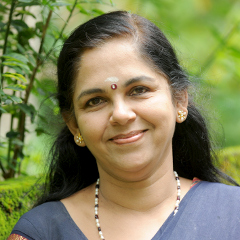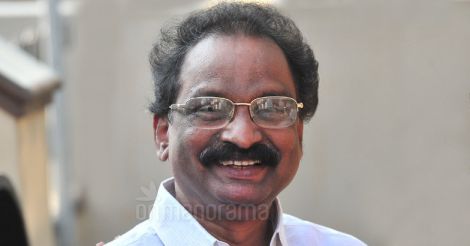This is one article I could have done without, especially at a time when Kerala is celebrating the centenary of Sree Narayana Guru's teaching, "we don’t have caste."
The great savant was one who proved that even an innocuous smile conveys a fundamental and philosophically revolutionary message. He was one who smiled at the absurdity of institutionalized humbug.
It worries me more to write this article at a time Guru’s teachings hold much political relevance. It even makes me doubt if my beliefs have been wrong.
Read also: A Kerala minister's misogynist remarks expose deep-rooted prejudices
Not long ago, those wallowing in prosperity laughed down at those sun- and hunger-tanned souls. They were the insulted and humiliated, whose place was always outside the verandah—supposedly pregnant with imagination—of the upper caste and power-wielding class. They were destined to be laughed at: it was common during the Venmani era, a reflection of the upper caste supremacy.
Even as we consider that era has been relegated to the state’s history, a few recent incidents make us think otherwise. They remind us that if one’s hunger is satisfied and he is imaginative, he could even transform the State Assembly into a locker-room where undemocratic vulgarity is heard loud and clear.
They also remind us that feudal values could reign supreme in proletarian parties as well.
Such vulgarity and the subsequent collective guffaws sprouted in literature, took nourishment through movie stars representing the upper-class to reach the people’s representatives in the House.
This trend, however, points at the caste- and gender-based inferiority prevailing in the society.
Jokes, rather say insults, and guffaws have always been—in the past as well as today—represented the expression of masculinity and power. The subaltern class, downtrodden and women were its victims.
"I am not responsible for that pregnancy; mine would be different," a Jagathy Sreekumar-portrayed character says with a vulgar gesture in a Malayalam movie.
The dialogue triggered peals of laughter in movie halls; the same laughter recently reverberated in the State Assembly.
If words like "…responsible for pregnancy" is to be heard in modern times, one could guess the misogynist outlook of the speaker. Unfortunately, those words came from the minister for culture and communist leader A.K. Balan. He was speaking on infant deaths in the Attappadi tribal belt.
The words not only reflected the mindset of the minister, but also of those Assembly members who laughed at the "joke".
It reflected their hollowness and the world of materialistic pleasures they live in. One cannot, but hang her head in shame, when the elected representatives laugh in all vulgarity at those downtrodden outside the State Assembly.
There is a positive aspect to the perception that life is also a celebration and one to laugh. But it becomes a cruelty when the celebration and laughter is on the problems that make life difficult for others.
The beliefs that laughter could be evoked only through vulgar jokes and one could have a mass following only by making people laugh is the philosophy of third-rated filmmakers.
This is not the first time that a people's representative stoops low to exhibit a body language of arrogance and vulgarity.
It shames me as a human being and a woman. It should be noted that laughter has political, gender-wise, economic and social connotations.
Who all were hurt by these verbal jokes? Who were the targets? How come jokes are masculine? Inhumane acts become cruel jokes in a social process that polarizes at opposite ends the powerful and those succumbing to their supremacy.
Words are used carefully only by those who are concerned about others. Those in the public sphere should not only use words carefully, but also ensure that their words are sincere and compassionate.
(Saradakutty is a writer and critic in Malayalam. She teaches at DB College, Pamba)

























 File photo: A.K. Balan
File photo: A.K. Balan